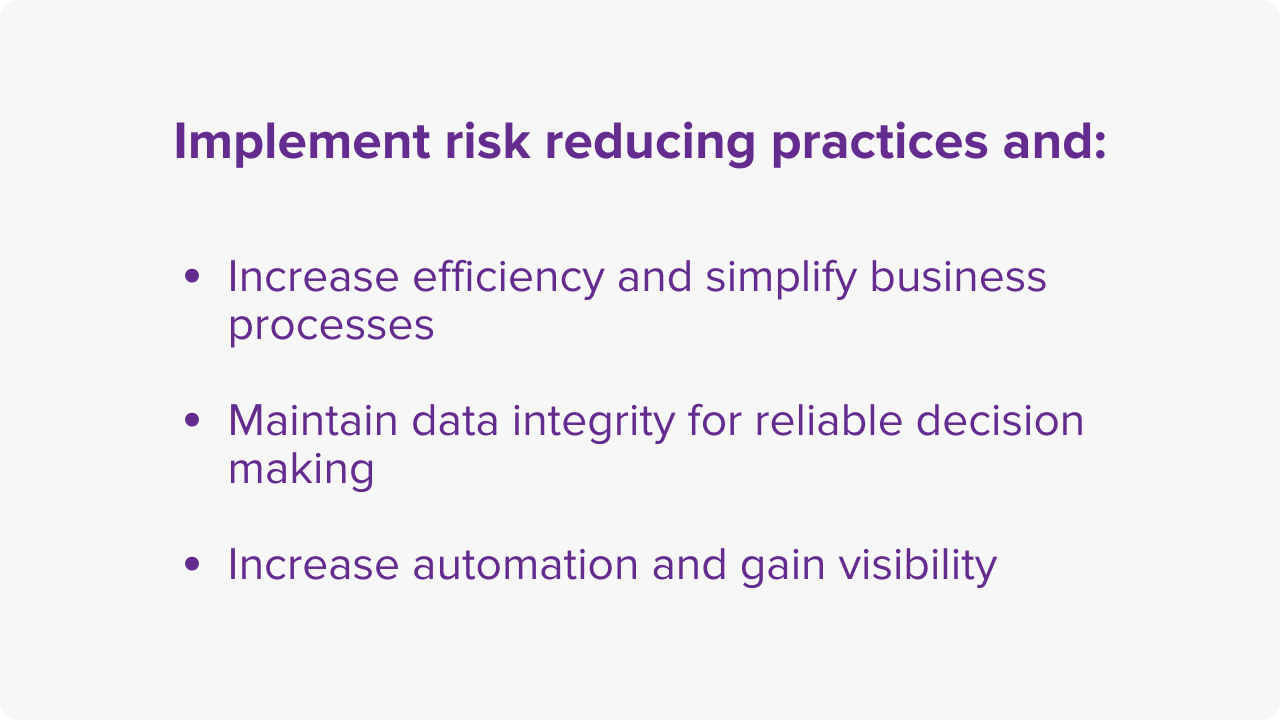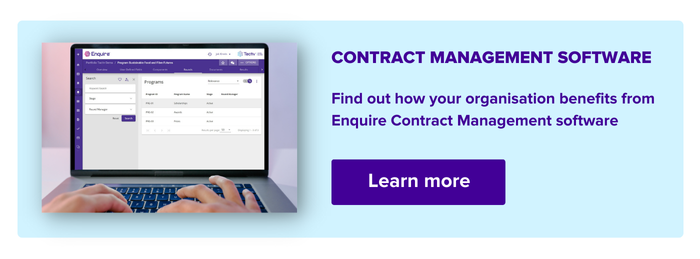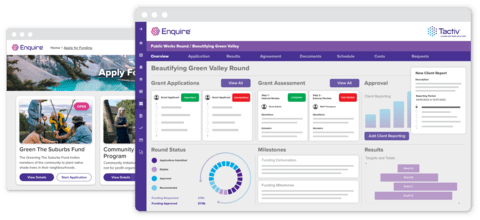Identifying Risks in Contract Management
Contract lifecycle management helps organisations avoid unnecessary risks and costs that could otherwise threaten their business.
Key risks throughout the contract lifecycle include:
- Unmanaged contract data
- No visibility on key party involvement
- Inaccurate reporting
- Missed or late renewals
- Insufficient contract performance monitoring.
These risks are avoidable by adopting best practice contract lifecycle management.
Not for profits, NGOs, local councils, and commercial organisations who rely on a portion of their investment from government funded programs face the heaviest burden of all as accountability and transparency requirements are even greater.
Avoiding unnecessary contract management risk starts with addressing 4 key critical factors:
Managing Contract Data
Improving contract data management is fundamental to achieving successful contract lifecycle management.
To get started it is critical to unify all contract data in a single system to manage all contract details and documents, contacts, and payment information.
Consistent Business Processes
Organisations need to introduce and standardise workflows for business processes. This removes the risk of ad hoc processes. With consistent business processes contract managers can exert more effective visibility across the contract lifecycle and all parties.
Following best practice, organisations must balance standardisation and reflecting on “how work is done.”
Automating Contract Monitoring
Automation improves administration while eliminating risks like delays, missed renewals and payments. Monitoring provides warning to contract managers before bottlenecks occur. Additionally, efficiencies are gained from the system recording milestone achievements, triggering payments, and tailoring data for individualised reporting for stakeholders. Through automation, contract managers gain control of their roles and work, rather than it controlling them.
Eliminating Siloed Systems
Contract management teams often use a variety of different software systems. Once contracts pass to other business areas or external parties more systems are involved. These disparate systems introduce risks like data contamination, inconsistent processes, and inability to automate. To combat this, contract lifecycle management integrates with other core business systems ensuring data is shared, up to date and tracked.
Why It Matters to Reduce Contract Management Risks
Identifying, assessing and rectifying risks in contract management dramatically improves the quality of service, communications and outcomes to make business processes more efficient. As a result, this ultimately positively affects brand reputation.

Enquire Lifecycle Management
Reducing unnecessary risks in contract management is easier and more cost effective than ever and the results are impactful.
With Enquire Contract Management Software government, foundations, NFPs, NGOs and other organisations benefit from in-built best practice to manage contract risk while managing grants, scholarship funding or other funded programs.







